Takeshi Saji
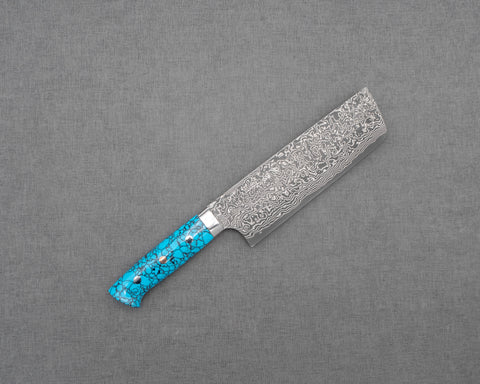
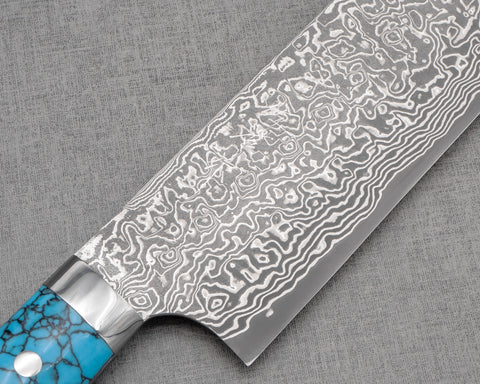
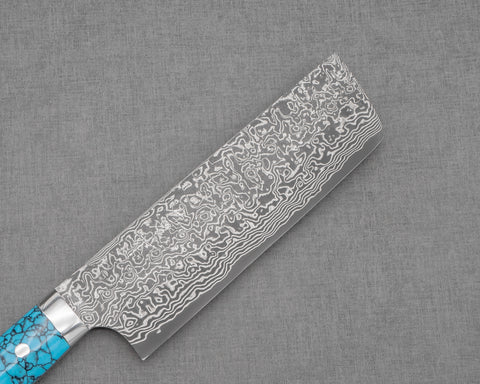
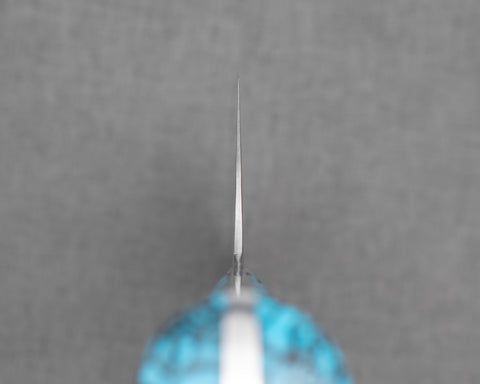
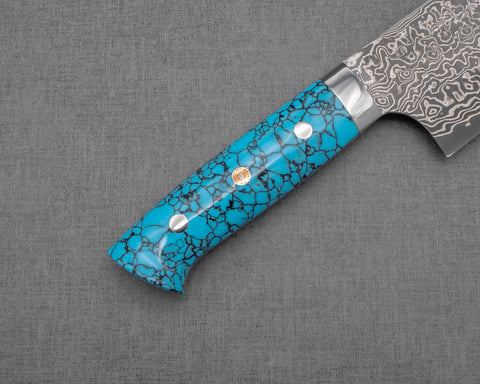
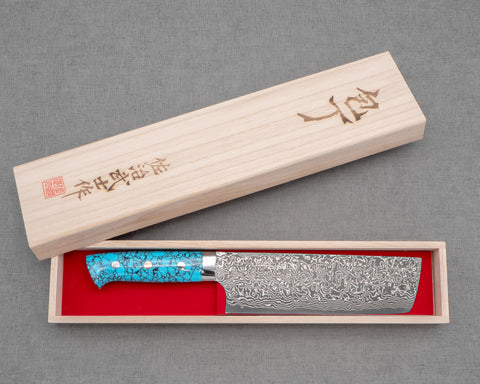
Takeshi Saji R2/SG2 Black Damascus 165mm Nakiri with Blue Turquoise Handle
目前沒有提供取貨服務
This Nakiri is handcrafted by Echizen master blacksmith Takeshi Saji using R2/SG2 steel, heat-treated to 63 HRC. The blade features a Kurosome Damascus finish that extends to the grind in this beautiful suminagashi pattern, and is paired with a beautifully polished blue turquoise handle. The famous Saji quality when it comes to forging, heat-treatment and grinding, and the thinness behind the edge make this knife a superior cutting performer.
Spec:
- Origin (Made in): Echizen, Fukui Prefecture, Japan
- Brand: Takeshi Saji
- Craftsman: Takeshi Saji
- Knife Type: Nakiri
- Blade
- Construction: San Mai
- Grind: Double-edged Blade (50/50 Grind)
- Hagane (Core Steel): R2/SG2
- Jigane (Cladding): Stainless Steel
- Hardness: 63 HRC
- Hand-forged, hand-grinded, hand-sharpened
- Blade Finishes:
- Damascus
- Kurosome (Black Etched)
- Blade Length: 165mm (6.5")
- Blade Height (at heel): 45mm
- Spine Thickness
- Above heel: 2.0mm
- Middle: 1.6mm
- Handle
- Shape: Western-shaped
- Material: Blue Turquoise
- Bolster: Stainless Steel
- Length: 115mm
- Overall Length: 300mm
- Weight: 265g (9.35oz)
- Hand Chiseled Mark: In Japanese Kanji "Saji Made" (佐治作)
- Comes in a Saji wood box
About Takeshi Saji 佐治 武士
Master Saji is the third generation blacksmith of Takefu City, Fukui Prefecture, who has been certified as a traditional knife craftsman at the age of 44. Now in his 70s, with over 30 years of experience in making handcrafted knives, Master Saji makes breathtakingly beautiful Damascus knives, which often paired with unique custom handles such as handcrafted iron wood handles. Having become a legend in hunting knife making, Master Saji has a unique eye for fine finish, and he's also innovating constantly by bringing new looks to knives.
Care:
Wash and dry with a soft sponge, and safely store after use. Avoid cutting into bones, frozen foods, hard fruit pits.
Cutting Surface:
Recommended cutting surface: wood, rubberized boards and high-end composites, and quality plastics such as polyethene make acceptable cutting surfaces, and will help protect and prolong knife’s edge. AVOID glass, metal, countertops, and other rigid, non-forgiving surfaces.
Sharpening:
We recommend sharpening all quality Japanese knives on whetstones, as we believe they yield the best results for your knives.
